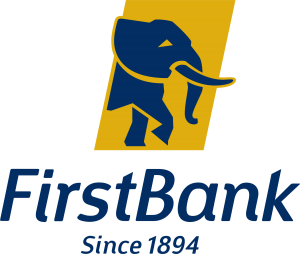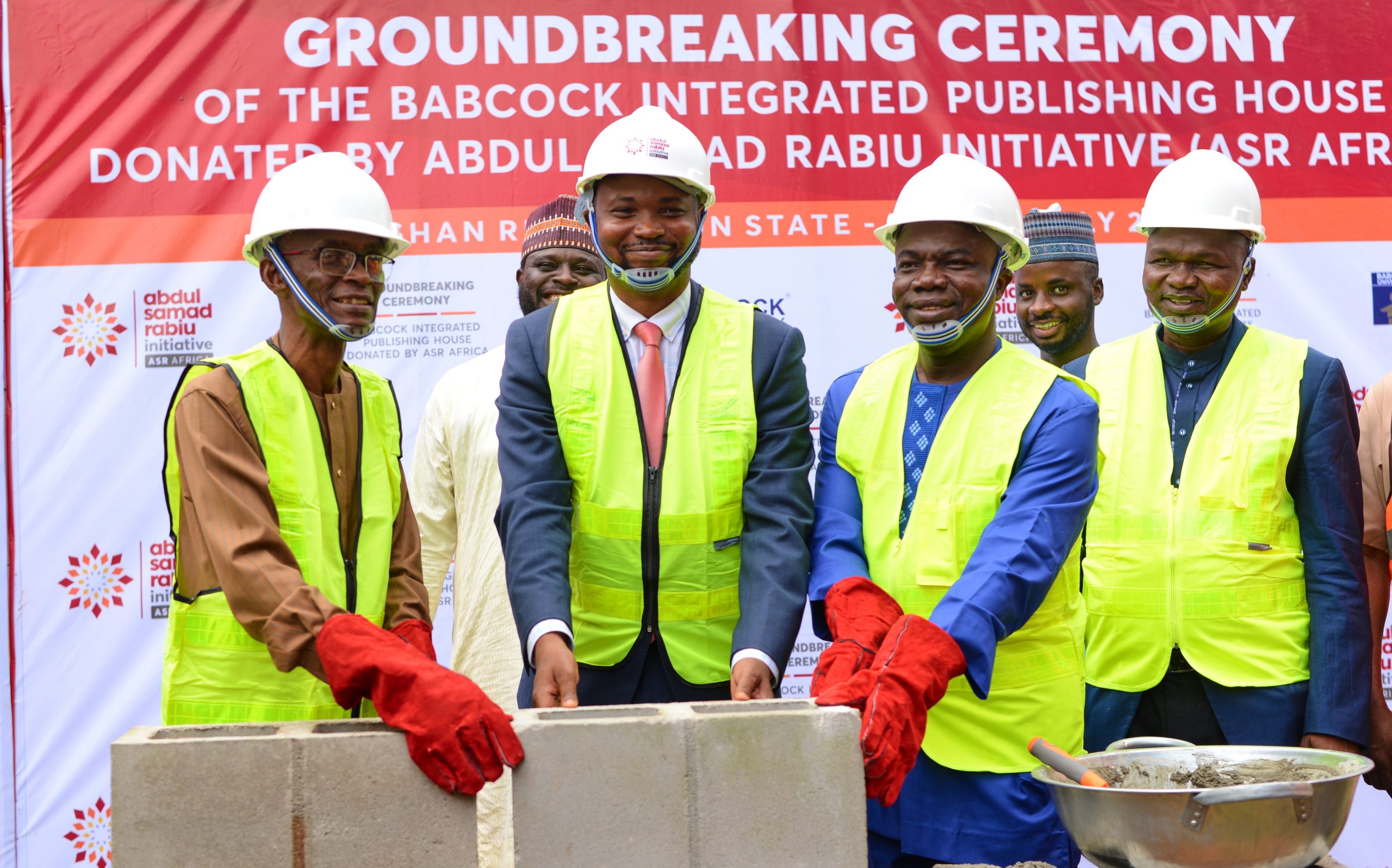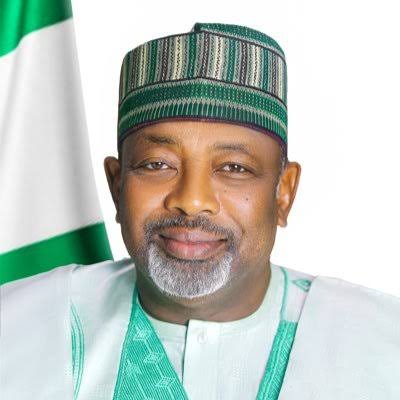Business
FirstBank: Nigeria’s Premier Eco-Friendly Financial Brand.
Published
3 years agoon

FirstBank: Nigeria’s Premier Eco-Friendly Financial Brand.
Concerning FirstBank, As the world gears up to celebrate World Environment Day (WED), Brand Communicator’s focus on Eco-Friendly Brands in the Nigerian market falls on Nigeria’s premier and perhaps the strongest financial institution, FirstBank of Nigeria Limited. The focus is on the Bank’s environmental policies and their impact on global environmental issues.

This brings to fore the importance of environmental sustainability in our world today. Environmental sustainability is one of the biggest challenges and most important targets of the present times. Stakeholders (researchers, academicians, scholars, governments, and non-government organizations involving individuals, communities, countries, and the continents, are increasingly focusing their attention on how to tackle the challenges associated with driving environmental sustainability. Key stakeholder concerns include the constant exploitation of the environment due to economic development. While the current generation is enjoying the fruits of economic development, they tend to be oblivious of the uncertainty and dangers that future generations would confront as a result of scarce natural resources and a polluted environment. It is, therefore, our responsibility to leave the planet as a self-sustainable system providing equal opportunities for survival not only to our future generations but also to all other species co-habiting with us.
In Nigeria, studies have shown that various sectors of the economy are vulnerable to climate change. These include human settlements and health; water resources, wetlands and freshwater ecosystems; energy, industry, commerce, and financial services; agriculture, food security, land degradation, forestry, and biodiversity; coastal zone and marine ecosystems.
Because of the seriousness of climate change and the impact, it poses to the environment, an organization like First Bank of Nigeria Limited is leaving nothing to chance in ensuring an eco-friendly society. Its recognition of the environmental and social impacts of its operations has made it adopt policies and procedures that minimize negative environmental and social impacts.
In doing business, the Bank, which is Nigeria’s first and arguably its most prestigious, takes cognizance of potential environmental risks to nip them in the bud. This has done by constant interactions with stakeholders, driving sustainable insurance, and put necessary frameworks in place towards ensuring that its actions as a corporate entity do not impact negatively the environment.
As such, the sustainability of the societies and physical environments in which the Bank operates is critical to its own sustainable success. Therefore, the Bank has shown over the years that it is committed to making a positive contribution wherever it does business while avoiding or minimizing any direct or indirect negative impact on communities and the environment resulting from its activities, beyond its responsible lending and investment efforts.
The acknowledgment of the fact that its environmental impacts can be indirectly linked to climate change and its global effects have led the bank to adopt an approach to environmental sustainability which is two-fold based on its direct and indirect impacts. The approaches to reducing the direct impacts of its operations include the approach to minimizing carbon footprints and carbon offsetting; work towards carbon neutrality as well as promote wildlife and biodiversity conservation and preservation.
In minimizing waste, the Bank works to improve energy efficiency in its data centers and offices as well as reduce air travel and implement safe paper use initiatives. It also increased the use of conference calls for meetings as against attending physical meeting schedules thereby minimizing fuel consumption and carbon emission from vehicles. It’s Going Green’ efforts have also seen the Bank purchase renewable energy; promote tree planting initiatives and the indirect impact of its activities focuses largely on responsible lending.
The Bank’s key objectives of minimizing carbon footprints through the planting of trees, creating awareness among school children of the need to preserve wildlife and biodiversity, developing and educating environmentally conscious students through partnerships with reputable NGOs and institutions, are huge. The challenge in implementing this project is not just in identifying suitable locations with the right soil and climatic conditions for tree planting, but also in ensuring students’ participation.
These objectives and FirstBank’s responsible approach to protecting the environment have seen it partner with Nigerian Conservation Foundation (NCF), Nigeria’s premier non-governmental environment conservation foundation dedicated to nature conservation and sustainable development in Nigeria. Its ongoing partnership with the NCF has seen it actively support annual activities promoting conservation and preservation of wildlife and biodiversity.
The FirstBank Conservation Initiative is part of our long-term approach to promoting sustainability, which involves minimizing our direct and indirect impacts on the environment. And the success of this initiative is dependent on our meaningful engagement with our stakeholders.
With its huge expertise in environmental issues, the Bank found a worthy and perfect partner in the NCF to help implement this program successfully. The NCF used its experience and influence to engage the various stakeholders to support the program. This included utilizing its conservation clubs, which provided educational sessions for the students on the importance and benefits of conservation and supporting biodiversity. The subsequent enthusiastic participation of the students, and the encouragement they received from the Ministry of Education and school authorities, enabled the program’s objectives to be achieved.
So far, 240 trees have been planted at the Lagos State Civil Service Model College Igbogbo in Ikorodu, and Evboesi Mixed Secondary School, Benin City. More than 1,000 environmental sustainability champions have also been appointed in these locations. These champions are young people who look after the trees and ensure that they are adequately cared for to help the bank achieve its afforestation goals. “The planting of trees is just part of our efforts to contribute to Nigeria’s green economy and to combat deforestation/desertification while recognizing the key role of children and young people in the sustainability agenda,” the Bank in a statement disclosed.
Through its partnership with Junior Achievement Nigeria (JAN), FirstBank sponsored the National Company of the Year (NCOY) Competition. The competition is an extension of the COY program that brings secondary students together to form a company, choose a business name and elect officers to oversee operations of the company for the program duration. It teaches students to put theory into practice to fully understand what financial literacy and entrepreneurship are. At the end of the program, the students that complete the program successfully, compete in the regional competition and represent their school in the National Company of the Year competition in Lagos. In 2020, the New Phase from Brookstone Secondary School, Port-Harcourt, Rivers state emerged winner, producing an eco-friendly block. The eco-friendly construction blocks were made from plastic waste. These sustainable blocks are the next wave of sustainable construction.
Beyond the initiatives above, responsible lending remains one of the strategic pillars in delivering the sustainability goals of the FirstBank Group. FirstBank has put in place an Environmental, Social and Governance Management System (ESGMS) to help the Bank integrate environmental social, and governance considerations into its decision-making processes. This includes an ESG policy and procedures for screening transactions. The ESG policy is based on existing policy documents and international best practices, while procedures to screen transactions are aimed at conducting ESG due diligence on potential transactions. These are based on Central Bank of Nigeria’s Sustainable Banking Principles, IFC Performance Standards, and international best practice and are tailored to FirstBank’s procedures, risk management framework, risk appetite, and tolerance, and adapted to its strategic objectives
The key objective of this policy is to ensure that all the transactions that FirstBank is considering funding, include adequate provision for actions necessary to prevent, control and mitigate negative impacts on the environment and communities, and improve environmental quality.
With this, FirstBank has shown its commitment to integrating social and environmental principles in all its operations; promoting good corporate governance and ensuring social and environmental considerations are included in the business decision making; reviewing and managing potential social and environmental risks in its lending and investment processes and activities and reviewing all borrowers against the criteria like exclusion list; the International Finance Corporate Performance Standards, and other applicable international standards as well as the Nigeria Sustainable Banking Principles (NSBP) requirements.
Other initiatives are, providing constant education and training for all staff on issues of environmental and social responsibility relevant to the business; regularly communicating to all stakeholders on the progress of commitments including achievements, challenges, and future direction; continuous improvement on how it identifies, assesses and manages Environmental, Social, and Governance (ESG) risks within its businesses.
The successful and productive implementation of the ESGMS has propelled the bank to integrate the associated checklist (which is usually completed by a relationship manager and verified by an analyst against the EIA report), into the bank’s credit application platform designed for reviewing credits. The goal is to ensure efficiency through automation as relevant implementation documents such as the environmental, social, and governance risks screening checklist will be fully automated.
These initiatives over the years and activities have shown that environmental sustainability remains a key corporate responsibility & sustainability focus for FirstBank.
Related
Sahara weekly online is published by First Sahara weekly international. contact [email protected]

Business
Lion Oshiyemi Pledges redefinition, reposition as he emerges 20th President of OGUNCCIMA
Published
9 hours agoon
July 26, 2024
Lion Oshiyemi Pledges redefinition, reposition as he emerges 20th President of OGUNCCIMA
Lion Niyi Oshiyemi has been invested as the 20th President of the Ogun State Chambers of Commerce, Industry, Mines and Agriculture (OGUNCCIMA) at the Chamber’s 40th Annual General Meeting.
The investiture ceremony of the new OGUNCCIMA leadership was held on Thursday at Tunwase Hall in Ijebu Ode, Ogun State with top Chamber movement members in attendance.
The President In his acceptance speech, expressed gratitude to the immediate past President, Engr. Mike Akingbade, and the Chamber for entrusting him with the esteemed position.
He pledged to leverage available opportunities to redefine and reposition the Chamber, creating platforms to influence legislation and improve the business environment.
“I am honored to lead this prestigious organization and I promise to harness all available opportunities to redefine and reposition the chamber of commerce movement in the state”.
“I will continue to create platforms to influence legislation and other measures affecting trade, improve the business environment, and build a Nigerian economy of thriving business opportunities through networking”.
“I wish to enjoin you all who represent businesses, if you have not joined the OGUNCCIMA, please come and lend your voice to others. The bigger the network, the louder the voice and the stronger the influence”.
“Our advocacy seeks to ensure that the business community can have its voice heard on issues that are important to it”.
“I’d like to introduce to you my Presidency’s flagship project “OGUNCCIMA Secretariat”: The project is massive and requires a lot, I therefore seek your support and look forward to partnering with all stakeholders – the state government and it’s agencies (Federal and State Ministries, Departments and Agencies), development partners, the diplomatic communities, the media, and other stakeholders”, he said.
Oshiyemi also praised the founding fathers of the Chamber, saying, “I laud the vision of our founding fathers, who have laid a solid foundation for us to build upon. I am committed to taking OGUNCCIMA to greater heights and making it a beacon of hope for businesses in Ogun State.”
The Ogun State Hon. Commissioner for Industry, Trade and Investment, Hon. Adebola Sofela Emmanuel, in his keynote address said by the Permanent Secretary, Ministry of Trade and Investment, Dr. Olu Ola Aikulola, said over the years that the Ogun State Chambers of Commerce, Industry, Mines and Agriculture (OGUNCCIMA), has not only remained a beacon of entrepreneurial excellence, but also partners in driving economic growth, fostering trade, and promoting investment opportunities in the state.
He said: “I would like to extend my heartfelt congratulations to OGUNCCIMA on this historical movement. Forty years of dedicated service to the industrial, trade, and agricultural sectors of Ogun State is no small feat”.
“Over the years, the Ogun State Chambers of Commerce, Industry, Mines and Agriculture (OGUNCCIMA) has not only been a beacon of entrepreneurial excellence but also a pivotal partner in driving industrial growth, fostering trade, and promoting investment opportunities”.
“Today, as we elect new officers to continue this legacy of excellence, I urge all members to approach this process with a spirit of unity, fairness, and foresight. The future of our chambers and the economic well-being of our state depend on the collective wisdom and strategic vision of our leaders”.
“For us, as a government, we will continue to put in place Institutional mechanisms that will guide our various developmental programmes in all sector of the economy”, he added.
In his remarks, NACCIMA President, Dele Kelvin Oye, represented by the Director – General, Olusola Obadimu, urged the new leadership of OGUNCCIMA to reflect on the the Chambers achievements and chart the course for the future.
“Today, as we gather for the 40th Annual General Meeting and Investiture of New Executives, I want to charge the new leadership to be dedicated and build on the achievements of the past administrations”.
“On behalf of NACCIMA, I congratulate the new officers and may our shared efforts continue to bear fruit, and may new officers lead us for greater heights of success and prosperity”, he concluded.
Related
Business
ASR AFRICA FLAGS OFF CONSTRUCTION OF A N280 MILLION INTEGRATED PUBLISHING HOUSE FOR BABCOCK UNIVERSITY, ILISHAN-REMO, OGUN STATE, NIGERIA
Published
13 hours agoon
July 26, 2024
ASR AFRICA FLAGS OFF CONSTRUCTION OF A N280 MILLION INTEGRATED PUBLISHING HOUSE FOR BABCOCK UNIVERSITY, ILISHAN-REMO, OGUN STATE, NIGERIA
Sahara Weekly Reports That The Abdul Samad Rabiu Africa Initiative (ASR Africa), the philanthropic initiative of the Chairman of BUA Group, Abdul Samad Rabiu (CFR, CON), has flagged off the construction of a N280 million Abdul Samad Rabiu Integrated Publishing House for Babcock University, Ilishan-Remo, Ogun State. This project will enhance the capacity of the University from basic press status to a modern, integrated publishing house to encompass publishing, print production, and other related diversified services. The one-storey building facility will serve as a laboratory and studio for training students of communications, media studies, and allied disciplines as well as other disciplines.
At the groundbreaking event, the Vice Chancellor of the University, Prof. Ademola S. Tayo, expressed satisfaction at the nomination by ASR Africa, under its Tertiary Education Grant Scheme. He added that the choice of the project was a response to the vision to take the Mass Communications Department of the University to a whole new level. According to him, the university’s vision is to produce young men and women capable of critical thinking, and problem-solvers capable of proffering innovative solutions to problems of everyday life, be it social, political, and cultural.
In his response, Dr. Ubon Udoh, the Managing Director of ASR Africa, expressed his delight at the University’s choice of establishing an Integrated Publishing House. He added that when information is appropriately applied, human society is empowered to liberate itself from limitations and attain its full potential. Dr Udoh reiterated the commitment of the Chairman of ASR Africa, Abdul Samad Rabiu to supporting quality education within the tertiary education system in Nigeria and urged the institution to focus on the sustainability of this noble project. He also reiterated the importance of cooperation and collaboration between the university and the contractor for the timely delivery of the publishing house.
About ASR Africa
ASR Africa is the brainchild of African Industrialist, Philanthropist, and Chairman of BUA Group, Abdul Samad Rabiu, the Abdul Samad Rabiu Africa Initiative (ASR Africa) was established in 2021 to provide sustainable, impact-based, homegrown solutions to developmental issues affecting Health, Education and Social Development within Africa.
Related
Business
CBOs Laud Minister of Agric Kyari Over Transparent Distribution Of Fertilisers, Foodstuff Across Nigeria
Published
17 hours agoon
July 26, 2024
CBOs Laud Minister of Agric Kyari Over Transparent Distribution Of Fertilisers, Foodstuff Across Nigeria
A network of community-based organizations (CBOs) in Nigeria, the Coalition of Ethnic Nationalities’ Rights Agenda, the South East Revival Coalition, and Progressive Yoruba Youth for Change have applauded the Minister of Agriculture and Food Security, Sen. Abubakar Kyari, for his efforts and transparency in the distribution of food, fertilisers and other farming inputs across the country.
The CBOs gave the commendation at a joint press conference held in Abuja on Thursday. The conference was addressed by Mallam Yusuf Khalifa, National Coordinator of the Coalition of Ethnic Nationalities’ Rights Agenda; Dr. Eberechi Okonkwo, Convener of the South East Revival Coalition; and Comrade Olajide Olumide Adeniyi, Executive Secretary of Progressive Yoruba Youth for Change.
“The Minister of Agriculture and Food Security, Senator Abubakar Kyari has established a reputation for integrity and transparency in the ministry. The transparency in the distribution of food, fertilisers and other farming inputs across the country under Kyari’s stewardship is unprecedented,” the CBOs said.
“Senator Kyari has demonstrated a practical commitment to enhancing food security and nutrition in the country by prioritising equity and fairness in the distribution of food, fertilisers and other farming inputs.
“We salute his sense of nationalism. His fair distribution of farming inputs has laid a strong foundation for a prosperous and sustainable agricultural sector. Kyari’s tireless efforts to revolutionise the agricultural sector as well as to ensure that Nigeria becomes self-sufficient in food production is beyond patriotic.
“His exceptional leadership has made the the issue of marginalization in the distribution of food, fertilisers and other farming inputs, a thing of the past in the country. The effective utilization of resources by the Minister has proven not only instrumental to modernising the agricultural space but also to peace and harmony on farms across the nation.
“We applaud Senator Kyari for championing the emancipation of Nigerian farmers, particularly those in rural communities who previously lacked access to government-distributed food, fertilizers, and other farming supplies. Kyari’s unwavering support for women and youth in agriculture has resulted in increased distribution of food, fertilizers, and other farming inputs to more female and young farmers this year than ever before.
“This network of community-based organisations urges the beneficiaries, especially those in the rural communities, to use the supplies judiciously for the purpose they were distributed for. The government has prioritised the agricultural sector as a key driver of Nigeria’s economic growth, hence, its unwavering support of the sector. Farmers must corroborate the government’s efforts by taking advantage of its policies, programmes and interventions.
“We urge the Minister to sustain his visionary leadership, effective resource utilization, and strategic initiatives which have yielded significant progress in the agricultural sector.
“We remain committed to working alongside the Minister to strengthen the agricultural sector and achieve a prosperous, food-secure, and environmentally sustainable Nigeria.”
Related
Cover Of The Week

- Economic Community of West African States (ECOWAS) Centre for Renewable Energy and Energy Efficiency (ECREEE) Inaugurates Solarization of Three Hospitals in Ghana July 26, 2024
- Tunisia: Amnesty International’s Secretary General denounces rollback of human rights upon concluding four-day visit July 26, 2024
- Merck Foundation Chairman & Chief Executive Officer (CEO) meet Botswana President & First Lady to launch long term partnership to build healthcare capacity, stop infertility Stigma & Gender-based Violence (GBV) and Support girl education in Botswana July 26, 2024
- Uganda: Children’s Parliament calls for end to hunger, malnutrition July 26, 2024
- Uganda: Aleper eulogised for uniting Karamoja July 26, 2024
- Call for the 2024-2025 Fellowship for Young African Professionals July 26, 2024
- Uganda: Northern Corridor Integration Projects Drive Regional Progress July 26, 2024
- South Sudan eyes Water Convention accession for stronger water governance and development opportunities July 26, 2024
- Strengthening Fisheries Cooperation: Indonesian Ambassador Meets with Angolan Minister of Fisheries July 26, 2024
- Democratic Republic of the Congo: European Union (EU) lists nine individuals and one entity July 26, 2024
- Economic Community of West African States (ECOWAS) Centre for Renewable Energy and Energy Efficiency (ECREEE) Inaugurates Solarization of Three Hospitals in Ghana July 26, 2024
- Tunisia: Amnesty International’s Secretary General denounces rollback of human rights upon concluding four-day visit July 26, 2024
- Merck Foundation Chairman & Chief Executive Officer (CEO) meet Botswana President & First Lady to launch long term partnership to build healthcare capacity, stop infertility Stigma & Gender-based Violence (GBV) and Support girl education in Botswana July 26, 2024
- Uganda: Children’s Parliament calls for end to hunger, malnutrition July 26, 2024
- Uganda: Aleper eulogised for uniting Karamoja July 26, 2024
- Call for the 2024-2025 Fellowship for Young African Professionals July 26, 2024
- Uganda: Northern Corridor Integration Projects Drive Regional Progress July 26, 2024
Trending
-

 Business6 months ago
Business6 months agoFintech Guru, Jesam Micheal Opens Biggest Apple Store In Africa, Reveals Why
-

 Business6 months ago
Business6 months agoFintech Guru, Jesam Micheal Opens Biggest Apple Store In Lagos On Saturday (Video)
-

 celebrity radar - gossips6 months ago
celebrity radar - gossips6 months agoTop Lagos Monarch Receives Jesam Micheal, Urges Him on First AAS Solar Powered Estate Project
-

 celebrity radar - gossips6 months ago
celebrity radar - gossips6 months agoMFM WINS AGAIN AS US COURT SLAMS BLOGGER, FUNKE ASHEKUN WITH 50,000 DOLLARS FOR SLANDERING CHURCH AND DR OLUKOYA








